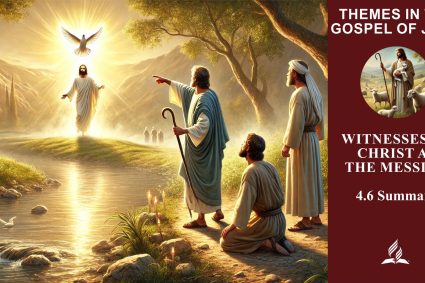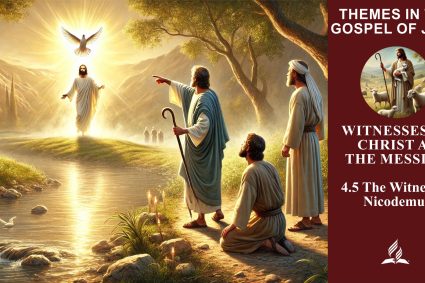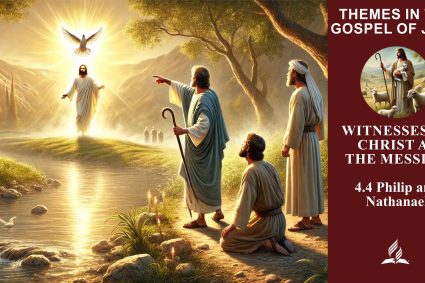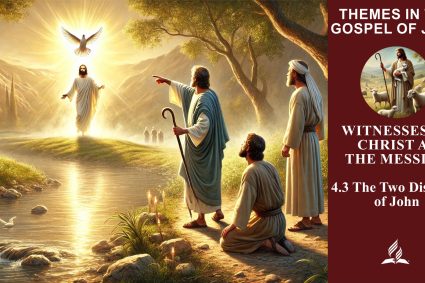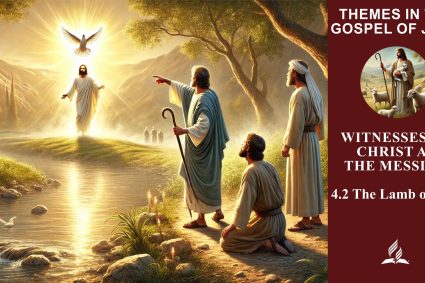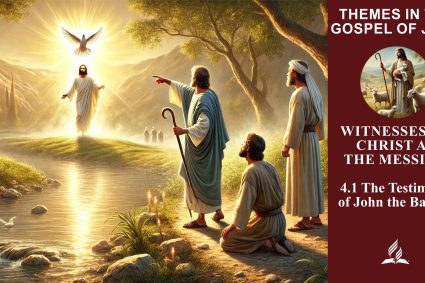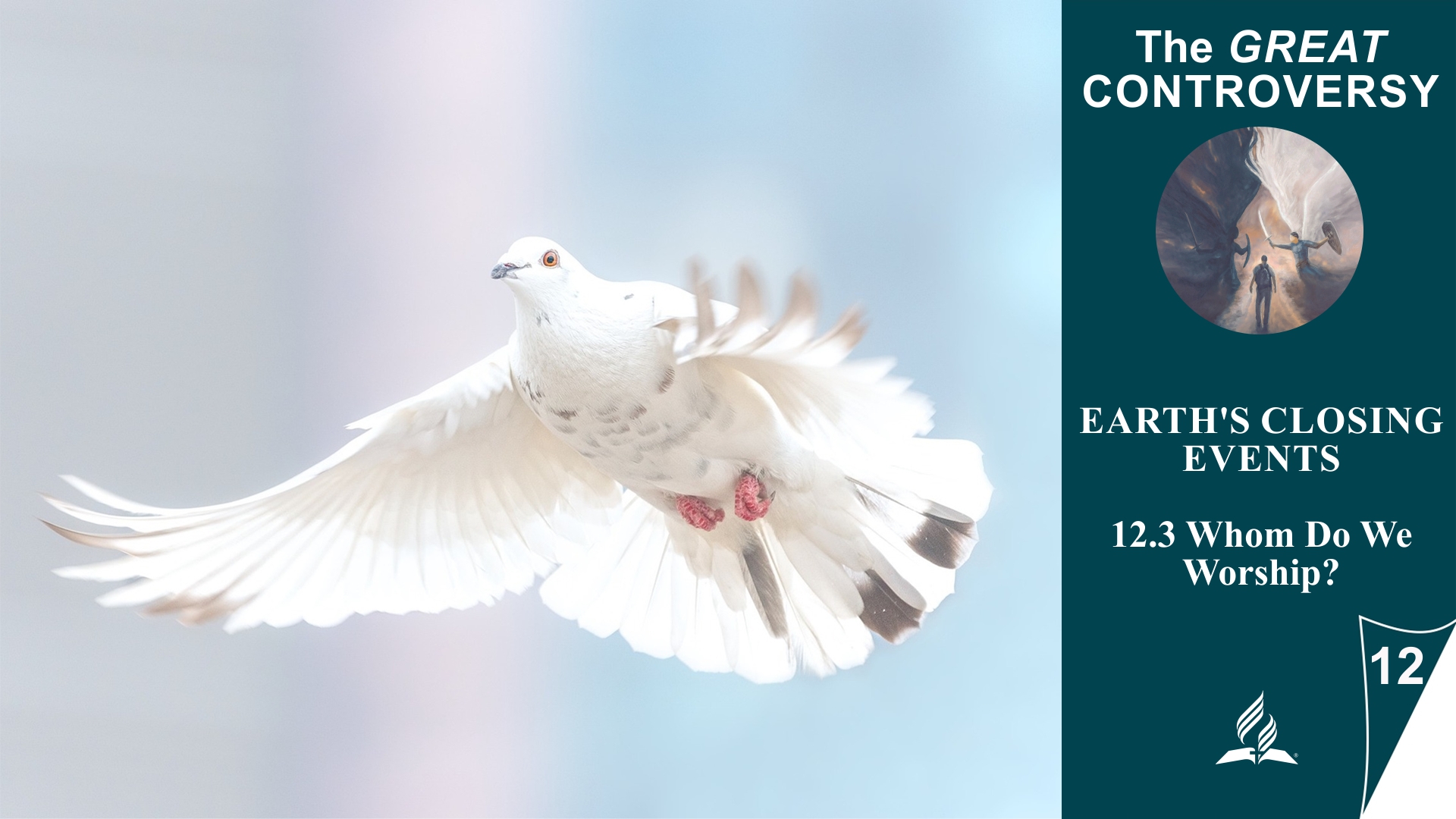


12.3 Whom Do We Worship?
The Decision in the Great Conflict
In the last days, the battle for true worship will take place dramatically. Do we worship the Creator or do we worship the beast and its image? There is no middle ground. The first angel in Revelation 14 calls on men and women: “Worship Him who made heaven and earth, the sea and springs of water!” (Rev 14:7). To further underscore heaven’s appeal, the third angel reveals the dire consequences of worshipping the beast: “He shall drink of the wine of the wrath of God, which is poured out undiluted into the cup of His anger” (v. 10). In contrast, those who worship the Creator are described as “those who keep the commandments of God and the faith of Jesus!” (v. 12).
Creation is the foundation of true worship (Rev 4:11). Since God “created all things through Jesus Christ” (Eph 3:9 SLT), Satan hates the Creator and has attempted through earthly powers to change the Sabbath, the memorial of creation (Dan 7:25). In the coming conflict over God’s law, the issue is authority. If Satan succeeds in eradicating Sabbath worship, he will declare that his authority is greater than God’s. To achieve this, Satan will try to convince or force the whole world to accept a counterfeit Sabbath.
As difficult as it may be to see this now—as we have already observed, the world is changing dramatically. The coronavirus crisis has shown us that our world can become a different place overnight. While we may not know the details leading to the mark of the beast, it is not very difficult to imagine. The world is very unstable, and with the amazing technology available today, what the Bible warns about could actually happen faster than we can imagine today.
Read Revelation 13:13–17. What specific penalties are imposed on those who do not accept the mark of the beast?
Those who remain faithful to Christ and do not accept the mark of the beast face severe consequences. In addition to economic penalties, they are also threatened with death. Humanity remains corrupt, power-hungry, and violent by nature. Although we do not yet know exactly how the final events will unfold, it is not difficult to imagine the persecution in the end times. Although written in a completely different context, these words of John say it all. Concerning Jesus, John writes that “He did not need anyone to testify about man, for He knew what was in man” (John 2:25 ESV).
Think about the corruption of humanity and the evil to which people are capable. Why does this show how easily the final events can occur? And, more importantly, what should this sad truth about guarding our own hearts teach us?
The corruption of humanity and the evil to which people are capable show how easily the final events can occur because they illustrate how quickly and widely the rejection of God and His commandments is prevalent in the world. Humanity is susceptible to manipulation, temptation, and sin. In a world where evil is so widespread, a crisis initiated by a manipulative and power-hungry system can easily lead to widespread persecution of believers. History shows that people are often capable of great evils when seduced by power and control over others. Therefore, it is not difficult to imagine that the warnings of the Bible about the end times could become a reality.
This sad truth about how corrupt humanity can be should teach us to guard our own hearts and be vigilant. We should be aware of how easily we ourselves can be influenced by the temptations and deceptions of this world. It is important to examine our hearts and minds daily and actively choose to follow God’s way and not submit to the temptations of evil. By aligning ourselves with God and His commandments, we can become more resilient to the temptations and corruption of the world. We must guard our hearts through regular prayer, study of the Bible, and a conscious decision to obey God in all things.

The connection between our daily lives and our faith is crucial, especially in times when the great conflict between true and false worship is becoming increasingly evident. Our daily lives are permeated with decisions that reflect our worship. Do we worship the Creator who made heaven and earth, or do we tend to follow the ways of this world and the seductive voices of evil? Revelation clearly shows that there is no middle ground. Our daily decisions, ranging from small habits to larger moral and ethical questions, reflect to whom we ultimately dedicate our worship.
The events described in Revelation could unfold much faster in our time than we can imagine. The current unstable world situation and technological advances make it clear that the warnings of the Bible no longer seem fictional. In such uncertain times, it is crucial to hold fast to our faith and follow the principles of Scripture.
When reflecting on the corruption of humanity and the evil to which people are capable, we should recognize how easily the final events can occur. History has shown us how susceptible humanity is to manipulation, abuse of power, and sin. This realization should encourage us to guard our own hearts and be vigilant. We must be aware of how quickly we can be influenced by the temptations and deceptions of this world.
To guard our hearts, we must turn to the Word of God daily, remain anchored in prayer, and consciously strive to follow God’s way in everything. By guarding our hearts in this way, we can become more resilient to the temptations and corruption of the world. It is our daily decision to guard our hearts through a firm faith, a conscious alignment with God’s commandments, and a deep relationship with Him.
Do we worship the Creator or do we worship the beast and its image? There is no middle ground.
Visited 25 times, 1 visit(s) today

